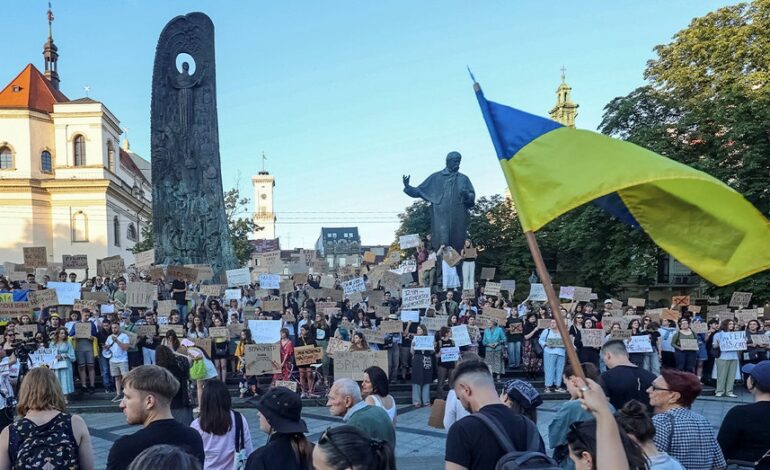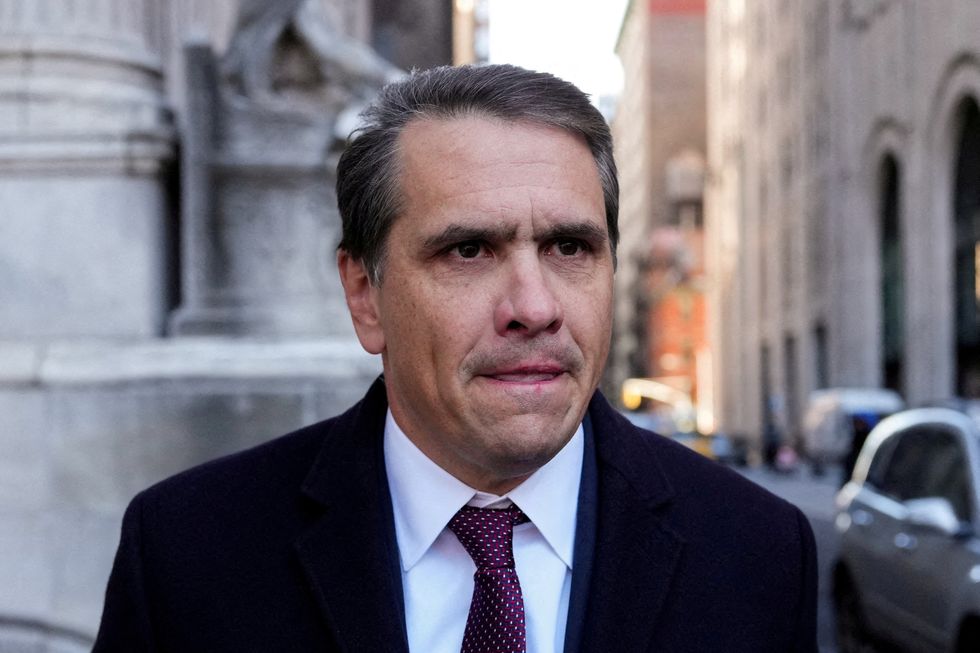Massive Protests Erupt in Ukraine Over Anti-Corruption Bill

UPDATE: Ukrainians are flooding the streets in a dramatic response to a newly passed bill that threatens the autonomy of key anti-corruption agencies. The legislation, which grants the general prosecutor—appointed by President Volodymyr Zelenskyy—increased control over the National Anti-Corruption Bureau (NABU) and the Specialized Anti-Corruption Prosecutor’s Office (SAPO), has sparked the largest protests since the onset of the Russian invasion in 2022.
Protesters gathered outside the presidential administration in Kyiv on July 22, 2025, while demonstrations unfolded in cities across the nation, marking the first significant wartime rally against legislation perceived as undermining democratic safeguards. Eyewitnesses report that the atmosphere is charged with anger and determination, as citizens voice their demands for transparency and accountability in governance.
The controversial vote took place just one day after the arrest of two NABU officials over alleged connections to Russia, raising alarms about the integrity of Ukraine’s anti-corruption efforts. As protests escalate, Zelenskyy faces increasing pressure from both citizens and international observers concerned about the potential erosion of Ukraine’s anti-corruption framework.
In a statement on social media, Zelenskyy emphasized the importance of a robust law enforcement and anti-corruption system, stating, “We all share a common enemy: the Russian occupiers. And defending the Ukrainian state requires a strong enough law enforcement and anti-corruption system—one that ensures a real sense of justice.”
Opposition voices have condemned the bill, warning that it could turn NABU into a mere extension of the prosecutor general’s office, effectively stripping it of its independence. A joint statement from anti-corruption agencies expressed that “if this bill becomes law, the head of SAPO will become a nominal figure.”
European Commissioner for Enlargement Marta Kos voiced strong concern over the legislation, describing the dismantling of key safeguards as a “serious step back” for Ukraine’s democratic institutions. The implications of this move extend beyond national protests; it jeopardizes Ukraine’s aspirations for European Union membership, which hinges on effective measures to combat internal corruption.
As the unrest continues, analysts warn that Zelenskyy’s relationship with international allies, including the United States, could be strained. Critics, including former President Donald Trump, have labeled the Ukrainian leader a “dictator without elections,” heightening the scrutiny of his governance.
Protesters have taken to the streets with placards demanding accountability and independence for anti-corruption institutions. The ongoing demonstrations highlight a pivotal moment in Ukraine’s struggle for democratic integrity amid external pressures from Russia and internal challenges to governance.
As developments unfold, all eyes remain on Ukraine’s capital, where the future of its anti-corruption efforts hangs in the balance. Authorities are expected to respond to the protests as the situation evolves. Observers note that the outcome of these demonstrations could significantly shape the country’s political landscape and its relations with the European Union.
Stay tuned for further updates as this situation develops.






